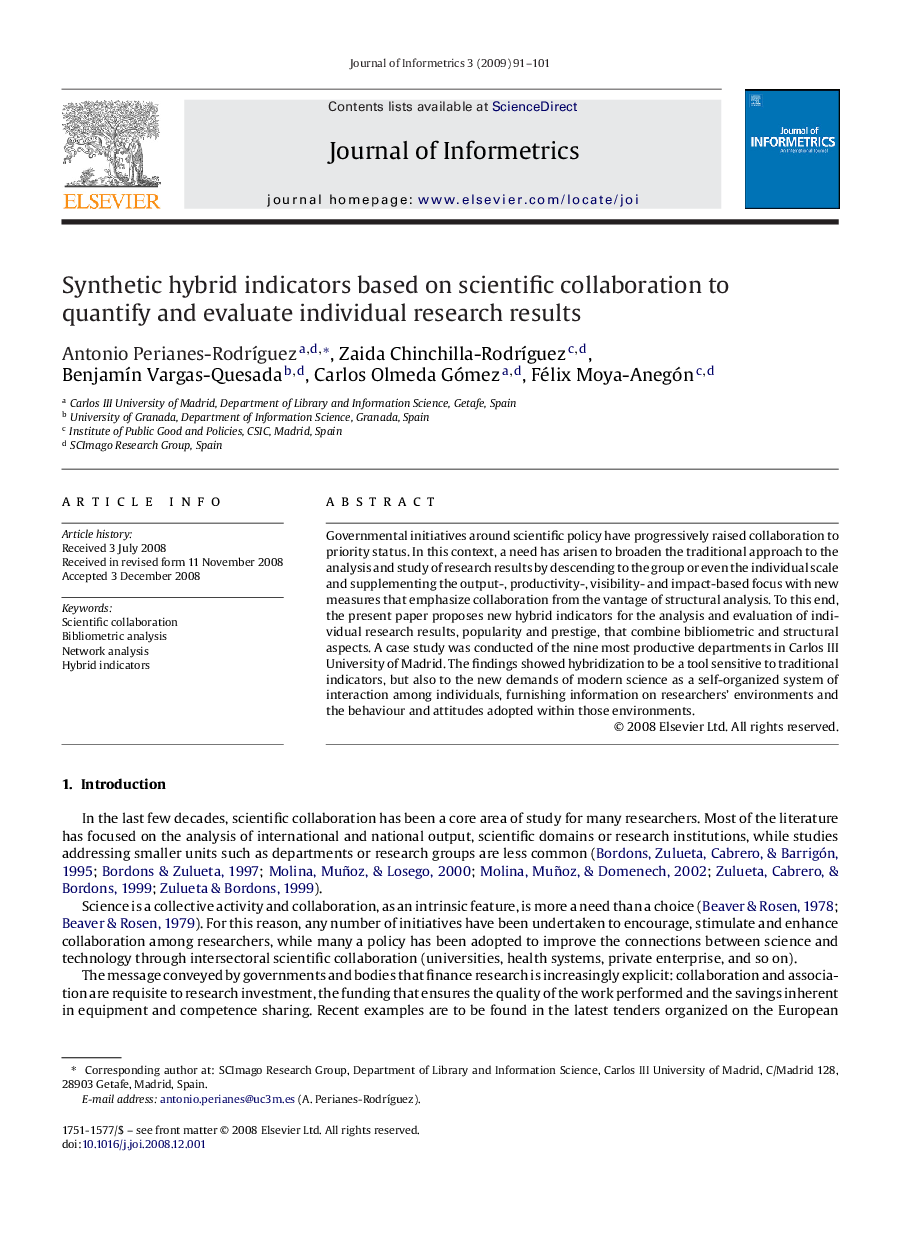| Article ID | Journal | Published Year | Pages | File Type |
|---|---|---|---|---|
| 523309 | Journal of Informetrics | 2009 | 11 Pages |
Governmental initiatives around scientific policy have progressively raised collaboration to priority status. In this context, a need has arisen to broaden the traditional approach to the analysis and study of research results by descending to the group or even the individual scale and supplementing the output-, productivity-, visibility- and impact-based focus with new measures that emphasize collaboration from the vantage of structural analysis. To this end, the present paper proposes new hybrid indicators for the analysis and evaluation of individual research results, popularity and prestige, that combine bibliometric and structural aspects. A case study was conducted of the nine most productive departments in Carlos III University of Madrid. The findings showed hybridization to be a tool sensitive to traditional indicators, but also to the new demands of modern science as a self-organized system of interaction among individuals, furnishing information on researchers’ environments and the behaviour and attitudes adopted within those environments.
